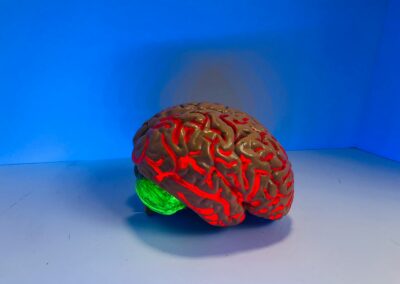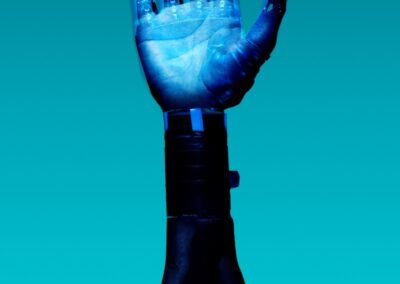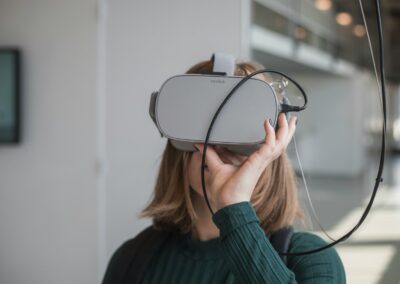Revolutionizing Neuroprosthetics with Sensory Feedback Technology
The Role of Sensory Feedback in Neuroprosthetics
One of the most significant challenges in traditional prosthetics is the lack of sensory feedback, which limits the user’s ability to perceive and interact with their environment naturally. Sensory feedback in neuroprosthetics addresses this challenge by enabling users to experience sensations such as touch, pressure, and temperature. This capability is achieved through advanced sensors embedded in the prosthetic devices, which interface directly with the user’s nervous system.
Artificial Intelligence (AI) plays a crucial role in optimizing sensory feedback. AI algorithms analyze sensory data and translate it into signals that the nervous system can interpret, creating a seamless and intuitive experience for the user. This technology allows for real-time adjustments, ensuring that the feedback is accurate and responsive to the user’s movements and environment.
The integration of sensory feedback in neuroprosthetics is particularly beneficial for individuals with limb loss, as it restores a sense of normalcy and improves their ability to perform everyday tasks. In Saudi Arabia and the UAE, where healthcare innovation is a priority, the adoption of this technology is enhancing the lives of many, enabling them to regain independence and improve their overall quality of life.
Case Studies: Transformative Impact of Sensory Feedback
Several case studies from Riyadh and Dubai highlight the transformative impact of sensory feedback in neuroprosthetics. For instance, a young woman in Riyadh who lost her hand in an accident received a neuroprosthetic hand equipped with sensory feedback. This technology allowed her to feel the texture and pressure of objects, enabling her to perform tasks with greater precision and confidence. The psychological benefits were equally significant, as the ability to feel sensations through the prosthetic reduced her sense of loss and improved her mental well-being.
In Dubai, a similar success story involves a man who suffered a spinal cord injury, resulting in paralysis of his lower limbs. With the aid of advanced neuroprosthetic legs that provide sensory feedback, he regained the ability to walk and maintain balance. The sensory feedback allowed him to feel the ground beneath his feet, which was crucial in re-learning how to walk and navigate his environment safely. This technological intervention dramatically improved his mobility and independence.
These case studies underscore the potential of sensory feedback in neuroprosthetics to transform the lives of individuals with mobility impairments. By restoring the sense of touch and enabling more natural interactions with the environment, these advanced prosthetics are setting new standards in patient care and rehabilitation. The commitment of healthcare providers in Saudi Arabia and the UAE to integrating these technologies into their treatment protocols reflects a forward-thinking approach to healthcare innovation.
Leadership and Change Management in Neuroprosthetic Advancements
The successful implementation of sensory feedback in neuroprosthetic technologies requires strong leadership and effective change management. Executive coaching services play a vital role in preparing healthcare leaders to manage these innovations and drive positive change. In dynamic environments such as Riyadh and Dubai, leaders must be equipped with the skills to navigate complex technological landscapes and foster a culture of continuous improvement.
Effective communication is essential for ensuring the successful integration of neuroprosthetic technologies. Leaders must engage with stakeholders, including patients, healthcare providers, and technology developers, to build trust and foster collaboration. By promoting transparency and open dialogue, leaders can address concerns and ensure that all parties are aligned in their goals and expectations.
Moreover, leaders must prioritize the ethical considerations associated with neuroprosthetic implants. This includes ensuring equitable access to these advanced technologies and addressing potential issues related to data privacy and security. Blockchain technology can play a significant role in this aspect by providing a secure and transparent platform for managing patient data, ensuring that information is protected and accessible only to authorized personnel.
#Neuroprosthetics #SensoryFeedback #AIinHealthcare #BlockchaininMedicine #GenerativeAI #SaudiArabia #UAE #Riyadh #Dubai #ChangeManagement #ExecutiveCoaching #EffectiveCommunication #BusinessSuccess #ManagementConsulting #LeadershipSkills #ProjectManagement























